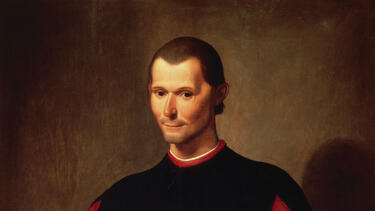All Insights Articles
What keeps the world's ships going?
Global trade is heavily dependent on the world's fleet of cargo ships, which carry everything from oil to iPads. Shipping operators in turn depend on specialized financing to stay in business. Scott Lewallen '89, global head of shipping finance for SEB Merchant Bank, describes how this little-noticed industry keeps globalization sailing ahead.
Have you paid a bribe?
Corruption gums up the workings of a market economy—making legal activity less efficient, degrading the quality of institutions, and disadvantaging those who would behave ethically. A website in India aims to use the tools of social networking to start the wheels of positive change.
What's the Google approach to human capital?
Google's success depends on sustaining both generative chaos and precision output. Laszlo Bock, who heads the internet giant's human resources function—which it calls "People Operations"—talks about how it encourages employees to participate in running the company and builds effective teams.
Do teams need leaders?
The team is an indispensable component of the modern organization. Harvard professor Richard Hackman outlines how leaders can set up teams for success.
What's the business case for diversity?
A range of often subtle biases around gender roles pervade the workplace. SOM's Victoria Brescoll discusses the impact these biases have on women and men, successful approaches to inclusivity, and the business case for making changes.
Do you need more power?
Does power corrupt? Stanford professor Jeffrey Pfeffer suggests that power is instead a tool that you should make use of to advance your career and safeguard your interests against unfeeling organizations and unfair leaders.
Do leaders need to be authentic?
Roger Brown is the president of the Berklee College of Music. He previously cofounded Bright Horizons, a childcare provider that grew into a billion-dollar, publicly traded company, and ran relief operations in Asia and Africa. He talks about lessons he’s learned from these leadership experiences—including the importance of authenticity and the value of a little music.
What kind of leaders do we need now?
Rosabeth M. Kanter discusses her vision of the advanced leadership needed to address the unique challenges of the complex global environment of the 21st century.
What Can You Learn from Machiavelli?
“It is necessary for a prince wishing to hold his own to know how to do wrong.” Advice like this, offered by Niccolò Machiavelli in The Prince, made its author’s name synonymous with the ruthless use of power. But Robert Harrison suggests you should be careful before looking for leadership lessons in The Prince.

Do we listen to opinion leaders?
Are there leaders in everyday life? A long body of literature argues that a small number of individuals have an outsize influence on what the rest of us buy, wear, and consume. But marketing professionals and scholars have been debating how to make use of these opinion leaders.